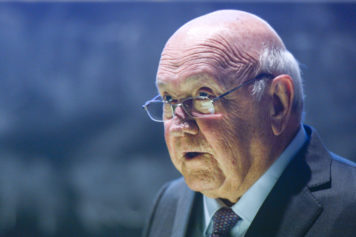Black youth in South Africa are performing abysmally in schools across the nation, a remnant of the brutal apartheid system that severely limited the aspirations and opportunities of generations of South African blacks, according to a recent report by the country’s National Policy Commission.
Despite national spending on education of 5 percent, an amount that puts South Africa in line with nations like the United States, Holland and Austria, there is a huge gap between the performance of white students and black students. The problems listed in the report, according to a story on allafrica.com, sound remarkably similar to the problems that plague black students in the United States: high poverty, horrendous school conditions and poor teacher quality. A study by South Africa’s Human Sciences Research Council found that nearly 20 percent of teachers are absent from schools on Monday and Friday and the absentee rate rises to one-third near the end of the month—a clear sign of a lack of commitment by the teachers assigned with educating the nation’s neediest students. The report points points out that South Africa’s teachers are among the highest paid in the world in terms of purchasing power parity.
South Africa is ranked 137th out of 139 countries for quality in math and science education and 125th for the quality of primary school education.
As for the physical conditions of the schools, an estimated 1,069 schools need running water, 14,989 need libraries and 18,258 need laboratories.
In a debate that closely mirrors that in the U.S. between liberals and conservatives over the benefits of increased education spending, researchers in South Africa have pointed out that “financial resources have brought little improvement to weak schools, thus concurring that funding is not the issue. They highlight that learners in low-income communities often attend schools that lack discipline, are weakly managed and have few qualified and experienced teachers.”
The chances of the system being turned around any time soon also appear to be bleak, as the reports points out that the schools are plagued by poorly prepared and ineffective principals and a system of deficient civil service employees who have gotten their jobs through nepotism.


